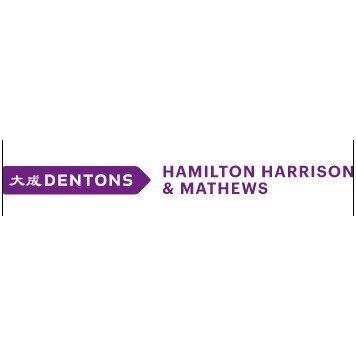Best Mining Law Lawyers in Mombasa
Share your needs with us, get contacted by law firms.
Free. Takes 2 min.
List of the best lawyers in Mombasa, Kenya
About Mining Law in Mombasa, Kenya
Mining Law in Mombasa, Kenya, governs the exploration, extraction, processing, and export of mineral resources within the region. The legal system in Kenya provides a structured and regulated environment for mining activities, encompassing issues such as licensing, environmental protection, community rights, royalties, and dispute resolution. Mombasa's strategic location as a coastal city and a major port plays a significant role in the trade and export of minerals, making Mining Law particularly relevant here. The laws are designed to ensure responsible mining that balances economic development with environmental and community well-being.
Why You May Need a Lawyer
Engaging in mining activities often involves complex legal requirements and significant financial risks. In Mombasa, you may need a Mining Law lawyer for situations such as:
- Applying for or renewing a mining or prospecting license
- Negotiating land access agreements or resolving land disputes
- Ensuring compliance with environmental regulations and local ordinances
- Drafting or reviewing contracts with partners, investors, or service providers
- Navigating government approvals and dealing with regulatory bodies
- Handling taxation issues and royalty payments
- Responding to claims or grievances from local communities or stakeholders
- Dealing with mergers, acquisitions, or the transfer of mining rights
- Settlement of disputes through arbitration or in court
A qualified lawyer can safeguard your interests, help you avoid costly mistakes, and ensure your mining operations adhere to the law.
Local Laws Overview
The legal framework for Mining Law in Mombasa, Kenya is mainly governed by the Mining Act, 2016, and various supporting regulations. Important aspects include:
- Licensing: All mining operations require the appropriate license from the Ministry of Mining. These include prospecting licenses, mining licenses, and mineral rights.
- Local Participation: Regulations promote local content, such as employment of Kenyan citizens and community involvement in mining projects.
- Environmental Protection: Environmental Impact Assessments (EIAs) and compliance with environmental regulations are mandatory for all mining ventures.
- Royalties and Taxes: Companies and individuals involved in mining must pay royalties and taxes as specified under national and county regulations.
- Land Use: Special attention is given to land rights, as Kenya's Constitution recognizes both public and private land, and local communities must be consulted on mining projects affecting their territories.
- Export Regulations: The movement and export of minerals through the Mombasa port are tightly controlled to prevent illegal trade and ensure proper revenue collection.
Frequently Asked Questions
What licenses do I need to start mining in Mombasa?
You must obtain several licenses, such as a prospecting license for exploration and a mining license for actual extraction, issued by the Ministry of Mining. Compliance with additional local regulations may also apply.
Who regulates mining activities in Mombasa?
The Ministry of Mining is the primary regulatory body, supported by various agencies like the National Environment Management Authority (NEMA) and county governments.
Are there restrictions on foreign ownership in mining projects?
Yes, the law requires a certain level of Kenyan ownership or partnership in mining ventures, especially for strategic minerals. The specific requirements can vary depending on the project and mineral type.
What environmental regulations apply to mining in Mombasa?
Every mining operation must comply with environmental laws, including conducting an Environmental Impact Assessment (EIA), obtaining NEMA approvals, and adhering to operational standards to minimize ecological harm.
How are community rights protected in mining areas?
Local communities must be consulted before mining operations begin. The law requires stakeholder engagement and may mandate benefit-sharing agreements or compensation for affected residents.
How are mining disputes resolved?
Disputes can be settled through negotiation, mediation, or arbitration. If these fail, parties may seek resolution in Kenyan courts, which have jurisdiction over mining matters.
What taxes and royalties am I required to pay?
Mining companies are subject to corporation tax, value-added tax (VAT), and royalties based on mineral production value, as prescribed by law.
Can I export minerals through the port of Mombasa?
Yes, but only with the proper permits and documentation. The Kenya Revenue Authority and the Ministry of Mining oversee the export of minerals to ensure compliance and revenue collection.
What penalties exist for illegal mining in Mombasa?
Engaging in mining without a license, or breaching environmental and community regulations, can result in hefty fines, confiscation of minerals, and even criminal prosecution.
How do I transfer or sell mining rights?
Mining rights can be transferred or sold, but the process must be approved by the Ministry of Mining. The new holder must meet all legal and regulatory requirements before assuming operations.
Additional Resources
If you need more information or assistance, the following organizations and resources may be helpful:
- Ministry of Mining, Kenya - Primary regulator for licensing and policy guidance
- Kenya Chamber of Mines - Industry association providing support and advocacy
- National Environment Management Authority (NEMA) - Oversees environmental compliance
- County Government of Mombasa - Local authority for land and community issues
- Kenya Revenue Authority (KRA) - Handles taxation and export duties on minerals
- Law Society of Kenya - Directory of qualified legal practitioners specializing in Mining Law
Next Steps
If you require legal advice or assistance in Mining Law in Mombasa, Kenya, consider the following steps:
- Identify your legal need, whether it is licensing, dispute resolution, or compliance issues
- Contact and consult a lawyer with experience in Mining Law and an understanding of the local legal landscape
- Prepare all relevant documents, such as existing licenses, land agreements, and correspondence with regulatory bodies
- Follow your lawyer’s guidance to ensure proper legal compliance and protect your interests
- If unsure where to begin, contact the Law Society of Kenya or the Kenya Chamber of Mines for referrals
Engaging a legal expert early can help you navigate the complexity of Mining Law, avoid regulatory pitfalls, and position your mining venture for success in Mombasa.
Lawzana helps you find the best lawyers and law firms in Mombasa through a curated and pre-screened list of qualified legal professionals. Our platform offers rankings and detailed profiles of attorneys and law firms, allowing you to compare based on practice areas, including Mining Law, experience, and client feedback.
Each profile includes a description of the firm's areas of practice, client reviews, team members and partners, year of establishment, spoken languages, office locations, contact information, social media presence, and any published articles or resources. Most firms on our platform speak English and are experienced in both local and international legal matters.
Get a quote from top-rated law firms in Mombasa, Kenya — quickly, securely, and without unnecessary hassle.
Disclaimer:
The information provided on this page is for general informational purposes only and does not constitute legal advice. While we strive to ensure the accuracy and relevance of the content, legal information may change over time, and interpretations of the law can vary. You should always consult with a qualified legal professional for advice specific to your situation.
We disclaim all liability for actions taken or not taken based on the content of this page. If you believe any information is incorrect or outdated, please contact us, and we will review and update it where appropriate.










